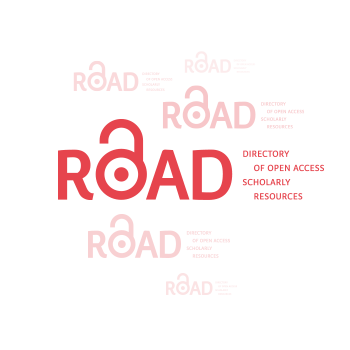Artificial Intelligence Applications in the Educational Process (Contributions, Opportunities, Challenges)
DOI:
https://doi.org/10.59994/pau.2025.SI.321Keywords:
Artificial Intelligence, Artificial Intelligence Applications, The Educational Process, Opportunities, ChallengeAbstract
This study aims to highlight the contributions of artificial intelligence (AI) to the educational process and to showcase the opportunities its applications offer in improving the teaching and learning experience as well as developing the educational system. Additionally, it seeks to identify the challenges and obstacles that hinder the effective implementation of these applications and prevent educational institutions from achieving their goals. The study adopted both the descriptive-analytical and inductive methodologies, where the researcher explained the concepts of artificial intelligence and its educational applications, addressing the most prominent aspects related to them across four main themes. Data were collected from various sources, including books, scientific references, research papers, previous studies, academic journals, conference proceedings, and specialized websites. The findings revealed that AI applications effectively contribute to the development of the educational process by improving the quality of educational outcomes and supporting all stakeholders in education at different levels, thereby helping achieve the intended educational objectives. Conversely, the study uncovered several challenges facing educational institutions, most notably the weakness of technological infrastructure and the shortage of qualified and specialized human resources capable of utilizing AI technologies in education. The study recommended the need to strengthen the use of AI applications to support and develop the educational process at all levels while emphasizing the central role of the teacher as the key factor in the success of the educational process. The originality of this study lies in its comprehensive approach to examining the role of AI in education from both a foundational and inductive perspective, linking technological contributions with the educational reality and providing a balanced analysis of both opportunities and challenges.
Downloads
References
المراجع
المراجع العربية:
أحمد، سلاف. (2024). التعليم وتحديات المستقبل في ضوء تكنولوجيا الذكاء الاصطناعي. المجلة العربية للمعلوماتية وأمن المعلومات، 5(15)، 49-72.
باريان، عفاف. (2024). توظيف تقنيات الذكاء الاصطناعي في التعليم الإلكتروني (الفوائد والتحديات) - مراجعة منهجية. مجلة ابتكارات للدراسات الإنسانية والاجتماعية، 2(2)،1-28.
بدوي، محمد. (2022). تطبيقات الذكاء الاصطناعي في التعليم: التحديات والأفاق المستقبلية. مجلة الجمعية للكمبيوتر التعليمي، 10(2)، 91-108.
تركي، جهاد. (2023). التحديات التي تواجه تطبيق الذكاء الاصطناعي في تعليم الموهوبين وآفاقه المستقبلية. المجلة التربوية لكلية التربية بجامعة سوهاج، 110(110)، 1-37.
الحجيلي، سمر؛ الفراني، لينا. (2020). الذكاء الاصطناعي في التعليم في المملكة العربية السعودية. المجلة العربية للتربية النوعية، 4(11)، 71-84.
الخيبري، صبرية. (2020). درجة امتلاك معلمات المرحلة الثانوية بمحافظة الخرج لمهارات توظيف الذكاء الاصطناعي في التعليم. دراسات عربية في التربية وعلم النفس، العدد 19، 121-153.
الشاهد، مصطفى. (2021). برنامج إثرائي قائم على تطبيقات الذكاء الاصطناعي لتنمية مهارات التعلم الإلكتروني لدى طلاب المرحلة الثانوية الأزهرية. (أطروحة دكتوراه غير منشورة)، جامعة دمياط، مصر.
عبد الصمد، محمد؛ أحمد، كريمة. (2020). تطبيقات الذكاء الاصطناعي ومستقبل تكنولوجيا التعليم. مصر، المجموعة العربية للتدريب والنشر.
العتل، محمد؛ العنزي، إبراهيم؛ العجمي، عبد الرحمن. (2021). دور الذكاء الاصطناعي (AI) في التعليم من وجهة نظر طلبة كلية التربية الأساسية بدولة الكويت. مجلة الدراسات والبحوث التربوية، 1(1)، 30-64.
العزيزي، محسن. (2024). تطبيقات الذكاء الاصطناعي في التعليم. مجلة المناهج المعاصرة وتكنولوجيا التعليم، 5(4)، 368-387.
عقيلي، محمد؛ حامد؛ عبد الرشيد؛ محمود، محمد؛ محمد، محمد. (2022). النظم الكمبيوترية الخبيرة ودورها في تطوير المناهج الدراسية. القاهرة، المركز الأكاديمي العربي للنشر والتوزيع.
العلي، أحمد. (2005). التعليم عن بُعد ومستقبل التربية في الوطن العربي. مصر، دار الكتاب الحديث.
عوض، ميشيل؛ محمد، مصطفى؛ خطاب، عصام. (2023). الثورة الصناعية الرابعة (تطبيقات رقمية، خدمات ذكية) الجزء الثاني. القاهرة، المعرفة اللامحدودية للنشر والتوزيع.
العياشي، زرزار؛ كريمة، غياد. (2024). الذكاء الاصطناعي في التعليم: ضرورات الواقع ومتطلبات المستقبل. المجلة الأفريقية للعلوم البحتة والتطبيقية المتقدمة، 3(3)، 38-47.
غوادر، نضال. (2017). أثر توظيف التعليم المتمازج على تحسيل طلبة مناهج البحث العلمي في كلية التربية في جامعة الخليل. مجلة جامعة فلسطين التقنية للأبحاث، 5(1)، 81-91.
الفأر، إبراهيم؛ شاهين، ياسمين. (2019). فاعلية روبوتات الدردشة التفاعلية لإكساب المفاهيم الرياضية واستبقائها لدى تلاميذ الصف الأول الإعدادي. تكنولوجيا التربية- دراسات وبحوث، العدد 38، 541-571.
الفراني، لينا؛ الحجيلي، سمر. (2022). العوامل المؤثر على قبول المعلم لاستخدام الذكاء الاصطناعي في التعليم في ضوء النظرية الموحدة القبول واستخدام التكنولوجيا. المجلة العربية للعلوم التربوية والنفسية، 4(14)، 215-252.
محمد، هاني. (2023). توظيف تطبيقات الذكاء الاصطناعي في العملية التعليمية من وجهة نظر المعلمين والطلاب. مجلة جامعة مطروح للعلوم التربوية والنفسية، 4(6)، 438-488.
مختار، محمود. (2020). تطبيقات الذكاء الاصطناعي: مدخل لتطوير التعليم في ظل تحديات جائحة فيروس كورونا COVID 19. المجلة الدولية للبحوث في العلوم التربوية، 3(4)، 171-224.
المهدي، ياسر. (2023). فرص وتحديات التعليم في عصر الذكاء الاصطناعي. مجلة مستقبل التربية العربية، 30(141)، 169- 176.
اليونسكو. (22 مايو 2019). الذكاء الاصطناعي في مجال التعليم على نحو منصف وشامل وشفاف. فرنسا، اليونسكو. متوفر على الرابط: https://www.unesco.org/
المراجع العربية بنظام الرومنة:
Ahmd, Slaf. (2024). alt'elym wthdyat almstqbl fy dw' tknwlwjya aldka' alastna'ey. almjlh al'erbyh llm'elwmatyh wamn alm'elwmat, 5(15), 49-72.
Baryan, 'Efaf. (2024). twzyf tqnyat aldka' alastna'ey fy alt'elym alelktrwny (alfwa'ed walthdyat) - mraj'eh mnhjyh. mjlh abtkarat lldrasat alensanyh walajtma'eyh, 2(2),1-28.
Bdwy, Mhmd. (2022). ttbyqat aldka' alastna'ey fy alt'elym: althdyat walafaq almstqblyh. mjlh aljm'eyh llkmbywtr alt'elymy, 10(2), 91-108.
Trky, Jhad. (2023). althdyat alty twajh ttbyq aldka' alastna'ey fy t'elym almwhwbyn wafaqh almstqblyh. almjlh altrbwyh lklyh altrbyh bjam'eh swhaj, 110(110), 1-37.
Alhjyly, Smr؛ Alfrany, Lyna. (2020). aldka' alastna'ey fy alt'elym fy almmlkh al'erbyh als'ewdyh. almjlh al'erbyh lltrbyh alnw'eyh, 4(11), 71-84.
Alkhybry, Sbryh. (2020). drjh amtlak m'elmat almrhlh althanwyh bmhafzh alkhrj lmharat twzyf aldka' alastna'ey fy alt'elym. drasat 'erbyh fy altrbyh w'elm alnfs, al'edd 19, 121-153.
Alshahd, Mstfa. (2021). brnamj ethra'ey qa'em 'ela ttbyqat aldka' alastna'ey ltnmyh mharat alt'elm alelktrwny lda tlab almrhlh althanwyh alazhryh. (atrwhh dktwrah ghyr mnshwrh), jam'eh dmyat, msr.
'Ebd Alsmd, Mhmd؛ Ahmd, Krymh. (2020). ttbyqat aldka' alastna'ey wmstqbl tknwlwjya alt'elym. msr, almjmw'eh al'erbyh lltdryb walnshr.
Al'etl, Mhmd؛ Al'enzy, Ebrahym؛ Al'ejmy, 'Ebd Alrhmn. (2021). dwr aldka' alastna'ey (AI) fy alt'elym mn wjhh nzr tlbh klyh altrbyh alasasyh bdwlh alkwyt. mjlh aldrasat walbhwth altrbwyh, 1(1), 30-64.
Al'ezyzy, Mhsn. (2024). ttbyqat aldka' alastna'ey fy alt'elym. mjlh almnahj alm'easrh wtknwlwjya alt'elym, 5(4), 368-387.
'Eqyly, Mhmd؛ Hamd؛ 'Ebd Alrshyd؛ Mhmwd, Mhmd؛ Mhmd, Mhmd. (2022). alnzm alkmbywtryh alkhbyrh wdwrha fy ttwyr almnahj aldrasyh. alqahrh, almrkz alakadymy al'erby llnshr waltwzy'e.
Al'ely, Ahmd. (2005). alt'elym 'en bu'ed wmstqbl altrbyh fy alwtn al'erby. msr, dar alktab alhdyth.
'Ewd, Myshyl؛ Mhmd, Mstfa؛ Khtab, 'Esam. (2023). althwrh alsna'eyh alrab'eh (ttbyqat rqmyh, khdmat dkyh) aljz' althany. alqahrh, alm'erfh allamhdwdyh llnshr waltwzy'e.
Al'eyashy, Zrzar؛ Krymh, Ghyad. (2024). aldka' alastna'ey fy alt'elym: drwrat alwaq'e wmttlbat almstqbl. almjlh alafryqyh ll'elwm albhth walttbyqyh almtqdmh, 3(3), 38-47.
Ghwadr, Ndal. (2017). athr twzyf alt'elym almtmazj 'ela thsyl tlbh mnahj albhth al'elmy fy klyh altrbyh fy jam'eh alkhlyl. mjlh jam'eh flstyn altqnyh llabhath, 5(1), 81-91.
Alfar, Ebrahym؛ Shahyn, Yasmyn. (2019). fa'elyh rwbwtat aldrdshh altfa'elyh leksab almfahym alryadyh wastbqa'eha lda tlamyd alsf alawl ale'edady. tknwlwjya altrbyh- drasat wbhwth, al'edd 38, 541-571.
Alfrany, Lyna؛ Alhjyly, Smr. (2022). al'ewaml alm'ethr 'ela qbwl alm'elm lastkhdam aldka' alastna'ey fy alt'elym fy dw' alnzryh almwhdh alqbwl wastkhdam altknwlwjya. almjlh al'erbyh ll'elwm altrbwyh walnfsyh, 4(14), 215-252.
Mhmd, Hany. (2023). twzyf ttbyqat aldka' alastna'ey fy al'emlyh alt'elymyh mn wjhh nzr alm'elmyn waltlab. mjlh jam'eh mtrwh ll'elwm altrbwyh walnfsyh, 4(6), 438-488.
Mkhtar, Mhmwd. (2020). ttbyqat aldka' alastna'ey: mdkhl lttwyr alt'elym fy zl thdyat ja'ehh fyrws kwrwna COVID 19. almjlh aldwlyh llbhwth fy al'elwm altrbwyh, 3(4), 171-224.
Almhdy, Yasr. (2023). frs wthdyat alt'elym fy 'esr aldka' alastna'ey. mjlh mstqbl altrbyh al'erbyh, 30(141), 169- 176.
Alywnskw. (22 mayw 2019). aldka' alastna'ey fy mjal alt'elym 'ela nhw mnsf wshaml wshfaf. frnsa, alywnskw. mtwfr 'ela alrabt: https://www.unesco.org/
المراجع الأجنبية:
Aktay, S. (2022). The usability of images generated by artificial intelligence (AI) in education. International technology and education journal, 6(2), 51-62.
Aldoseri, A., Al-Khalifa, K. N., & Hamouda, A. M. (2023). Re-thinking data strategy and integration for artificial intelligence: concepts, opportunities, and challenges. Applied Sciences, 13(12), 7082.
Alzubaidi, L., Bai, J., Al-Sabaawi, A., Santamaría, J., Albahri, A. S., Al-Dabbagh, B. S. N., ... & Gu, Y. (2023). A survey on deep learning tools dealing with data scarcity: definitions, challenges, solutions, tips, and applications. Journal of Big Data, 10(1), 46.
Budhwar, P., Chowdhury, S., Wood, G., Aguinis, H., Bamber, G. J., Beltran, J. R., ... & Varma, A. (2023). Human resource management in the age of generative artificial intelligence: Perspectives and research directions on ChatGPT. Human Resource Management Journal, 33(3), 606-659.
Buolamwini, J., & Gebru, T. (2018, January). Gender shades: Intersectional accuracy disparities in commercial gender classification. In Conference on fairness, accountability and transparency (pp. 77-91). PMLR.
Celik, I., Dindar, M., Muukkonen, H., & Järvelä, S. (2022). The promises and challenges of artificial intelligence for teachers: A systematic review of research. TechTrends, 66(4), 616-630.
Chen, X., Xie, H., Zou, D., & Hwang, G. J. (2020). Application and theory gaps during the rise of artificial intelligence in education. Computers and Education: Artificial Intelligence, 1, 100002.
Chong, J. V. V. (2020). Perspectives on Artificial Intelligence in Education: a Study of Public Elementary School Teachers (Master's thesis, Biola University).
Ermagan, E., & Ermagan, I. (2022). Innovative Technology and Education: Artificial Intelligence and Language Learning in Turkey. Shanlax International Journal of Education, 11, 201-209.
Leaton Gray, S. (2020). Artificial intelligence in schools: Towards a democratic future. London Review of Education, 18(2), 163-177.
Markow, W., Braganza, S., Taska, B., Miller, S., & Hughes, D. (2017). The Quant Crunch: How the Demand For Data Science Skills is Disrupting the Job Market. Burning Glass Technologies.
Odugbesan, J. A., Aghazadeh, S., Al Qaralleh, R. E., & Sogeke, O. S. (2023). Green talent management and employees’ innovative work behavior: the roles of artificial intelligence and transformational leadership. Journal of knowledge management, 27(3), 696-716.
Pedro, F., Subosa, M., Rivas, A., & Valverde, P. (2019). Artificial intelligence in education: Challenges and opportunities for sustainable development.
Rebbani, Z., Azougagh, D., Bahatti, L., & Bouattane, O. (2021). Definitions and applications of augmented/virtual reality: A survey. Int. J, 9(3), 297-285.
Tapalova, O., & Zhiyenbayeva, N. (2022). Artificial intelligence in education: AIEd for personalised learning pathways. Electronic Journal of e-Learning, 20(5), 639-653.
Whittaker, M., Crawford, K., Dobbe, R., Fried, G., Kaziunas, E., Mathur, V., ... & Schwartz, O. (2018). AI now report 2018 (pp. 1-62). New York: AI Now Institute at New York University.
Downloads
Published
How to Cite
Issue
Section
License
Copyright (c) 2025 Journal of Palestine Ahliya University for Research and Studies

This work is licensed under a Creative Commons Attribution 4.0 International License.
مجلة جامعة فلسطين الاهلية للبحوث والدراسات تعتمد رخصة نَسب المُصنَّف 4.0 دولي (CC BY 4.0)











